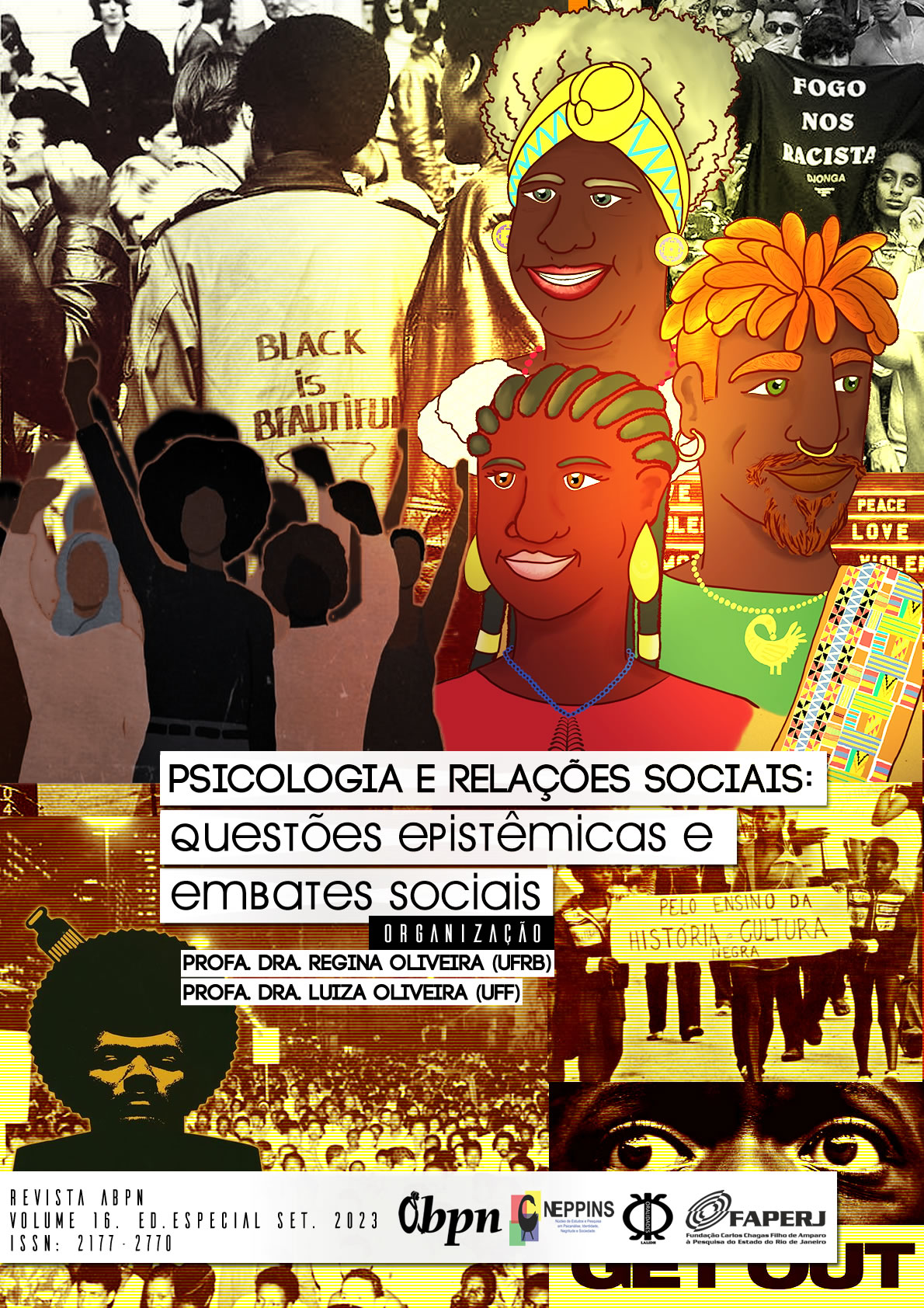THE PRODUCTION OF ANTI-RACIST PROFESSIONAL PRACTICES BY BLACK PSYCHOLOGISTS AND THE RELATIONSHIP WITH THEIR ACADEMIC-PROFESSIONAL PATHS
Main Article Content
Abstract
This article discusses the production of anti-racist professional practices by black female psychologists and the relationship with their academic-professional paths.
This is a qualitative research, whose theoretical-methodological tools establish intercession with black intellectuals, in which seven professionals from the northern region of the country were interviewed. The main results point to the absence of discussion about racial relations in academic training, while in professional activities there is a continuous construction of anti-racist practices, through collective production, the search for references by black intellectuals and the reading of territories. It is concluded that it is urgent to intensify the problematization of the formation, performance and production of knowledge of Brazilian psychology, with regard to racial relations, as well as the effective construction of an anti-racist science and profession.
Article Details

This work is licensed under a Creative Commons Attribution 4.0 International License.
Copyright Statement
- Authors retain copyright and grant the journal the right of first publication, with work simultaneously licensed under the Creative Commons Attribution License CC-BY 4.0 which allows the sharing of the work with acknowledgment of the authorship of the work and initial publication in this journal.
- Authors are authorized to enter into additional contracts separately for non-exclusive distribution of the version of the work published in this journal (eg, publishing in institutional repository or book chapter), with acknowledgment of authorship and initial publication in this journal.
- Authors are allowed and encouraged to post and distribute their work online (eg in institutional repositories or on their personal page) at any point before or during the editorial process, as this may lead to productive changes as well as increase impact and citation of published work (See The Effect of Free Access).

